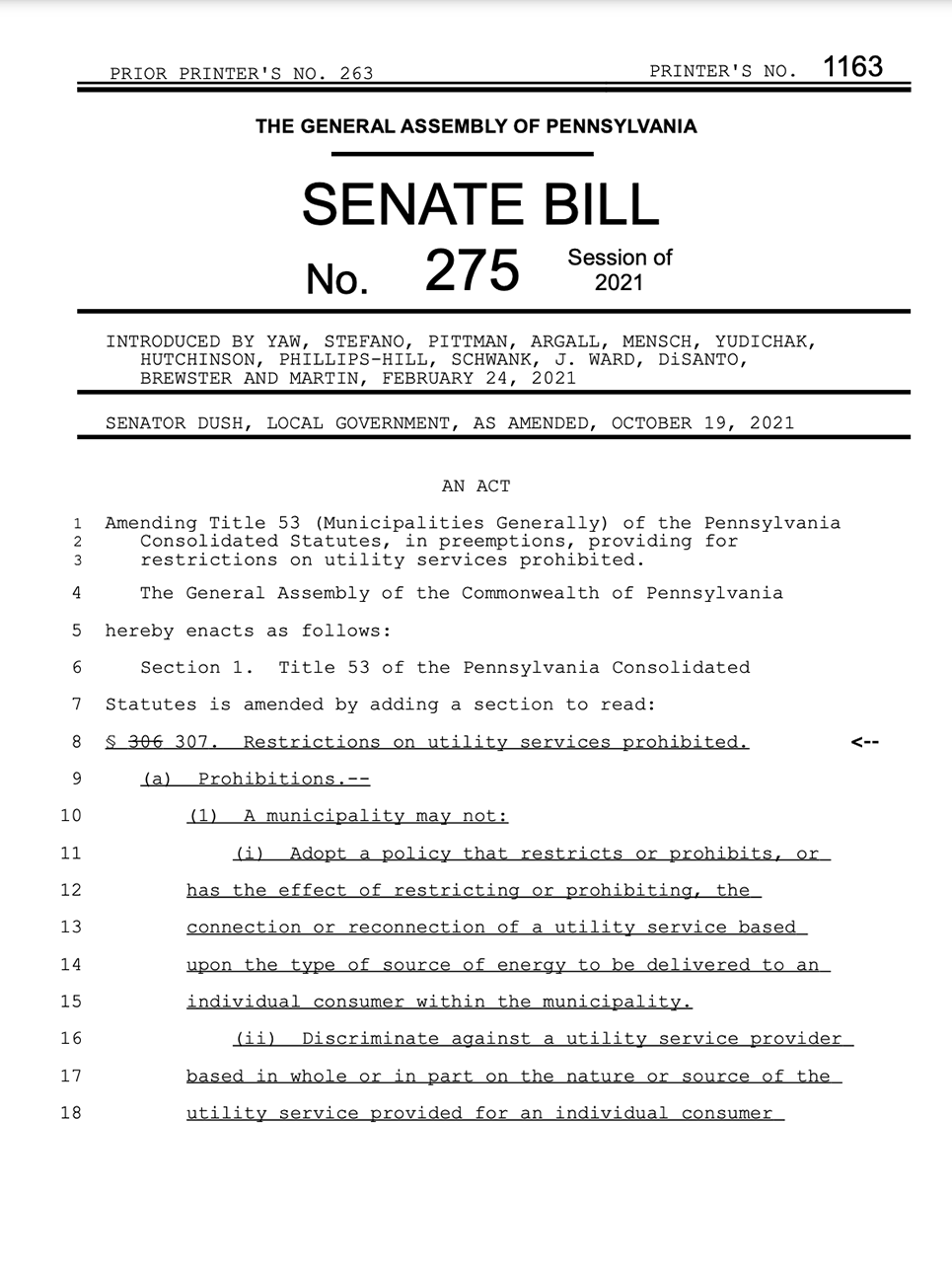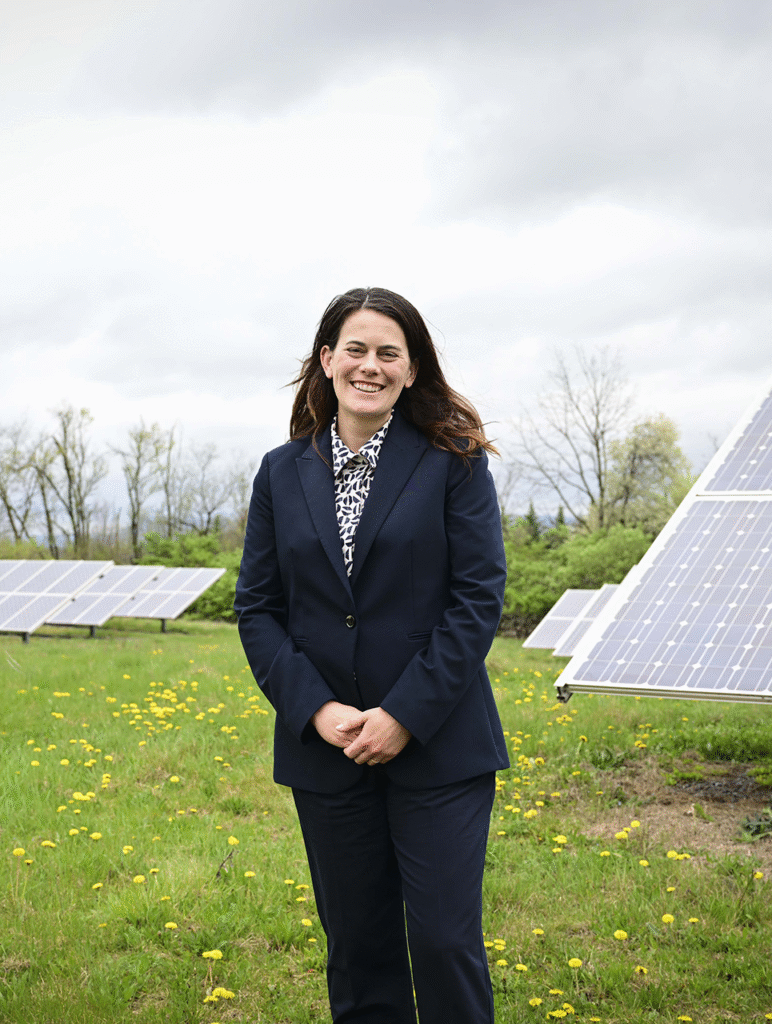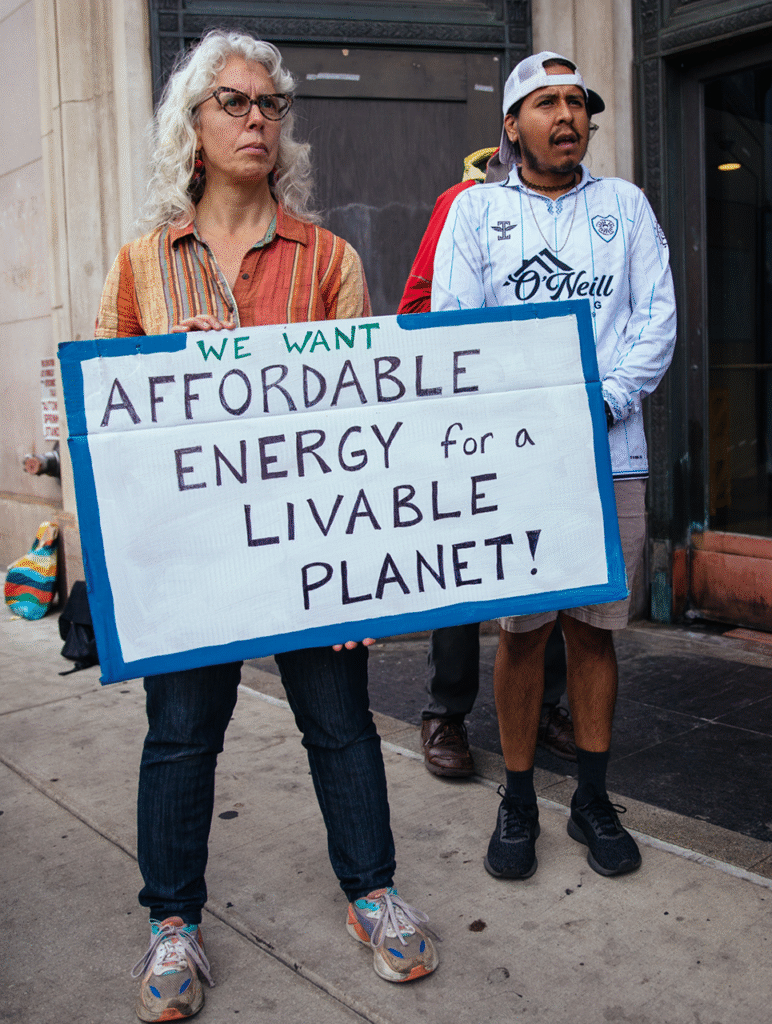Who expected the fossil fuel industry to fight fair? In 2021 12.2% of the energy used in the United States came from renewable sources, as did 20.1% of our electricity generation, according to the US Energy Information Administration. And that is projected to grow. Facing a shrinking share of the energy pie, the fossil fuel industry is working behind the scenes to hang on.
In Harrisburg this effort has taken the form of a bill to restrict localities from decarbonizing. Senate Bill 275, introduced by Senator Gene Yaw from Lycoming County (a similar bill passed in the state House of Representatives in January), would prohibit counties, cities, and other local governments from adopting any policy that “restricts or prohibits, or has the effect of restricting or prohibiting, the connection or reconnection of a utility service based upon the type of source of energy to be delivered to an individual consumer within the municipality.”
In other words, the City of Philadelphia couldn’t adopt policies requiring new buildings to use electricity for heat rather than natural gas, as have several local governments in California. The broad language of the bill — “has the effect of” — could also threaten other measures that encourage electrification but stop short of requiring it, according to David Masur, executive director of PennEnvironment.
Pennsylvania legislators aren’t making this up on their own. The American Gas Association has been lobbying state governments to enact bans like this to protect the companies it represents.
One of those companies, the Philadelphia Gas Works, is owned by the City of Philadelphia. Last year the City issued a report examining three paths towards reducing the city’s reliance on natural gas. “Together, the City and PGW leadership commit to stakeholder engagement and transparent decision-making around PGW’s future,” wrote PGW President and CEO Seth Shapiro with Christine Knapp, the director of the City’s Office of Sustainability.
That commitment to transparency hasn’t stopped PGW from working behind the scenes to pass the legislation, even though it is opposed by the City. Last year a Right-to-Know request from the Climate Investigations Center turned up emails showing that PGW took part in crafting a version of the legislation that failed to pass in Harrisburg last year.
“PGW has its outward facing narrative, but behind the scenes they keep doing things to reinforce our reliance on gas,” Masur says.








